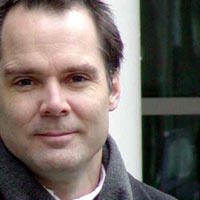 To paraphrase Robert Heinlein (I don’t remember which novel this was in), “The laws of Physics work for everyone, not just Americans.” I’m sure I have the specific quote wrong, but I think I’m accurately capturing the sentiment he was expressing – if we don’t build it, someone else can (and will).
To paraphrase Robert Heinlein (I don’t remember which novel this was in), “The laws of Physics work for everyone, not just Americans.” I’m sure I have the specific quote wrong, but I think I’m accurately capturing the sentiment he was expressing – if we don’t build it, someone else can (and will).
Once the cable can actually be created, the limiting factor will be the heavy-lift capability to get it into geosynchronous orbit. Right now, only the American and Russian space programs can do this. But others, most notably the Chinese, Indians and Japanese may have this capability in the near future.
This is an interesting article about our future space partners/competitors. It has nothing to do, explicitly, with building a Space Elevator, but the issues it brings up are, IMHO, very relevant to who will actually build the first Space Elevator.
I’ve been thinking about this for some time now. We promote the Space Elevator as a tool for opening up space to everyone, not just “government employees and rich tourists”. The idea sounds great, and, certainly, I’m all for it if it means that I might be able to get to space one day. But its easy to imagine some (paranoid) scenarios where another country or consortium builds the Space Elevator and then sells lift capacity to people/groups who we do not agree with.
I certainly don’t propose NOT building a Space Elevator. I just want to make sure that its we Americans who are the ones who build it and operate it…
 I just stumbled across this January 5th, 2007 interview with Neil deGrasse Tyson. He and the interviewer briefly discuss the (then) upcoming episode on Nova Science Now about the Space Elevator.
I just stumbled across this January 5th, 2007 interview with Neil deGrasse Tyson. He and the interviewer briefly discuss the (then) upcoming episode on Nova Science Now about the Space Elevator.
 Jan 18, 2007 Update – A reader posts a comment that Dr. Kalam, the person who made the address that I’m referring to, is actually the President of India, not just of this Science Center. I got confused – I thought that Manmohan Singh was the President of India, but I was wrong. He’s the Prime Minister of India. Dr. A.P.J. Abdul Kalam, indeed is the President of India. My sincerest apologies to Dr. Kalam and all those I may have misled.
Jan 18, 2007 Update – A reader posts a comment that Dr. Kalam, the person who made the address that I’m referring to, is actually the President of India, not just of this Science Center. I got confused – I thought that Manmohan Singh was the President of India, but I was wrong. He’s the Prime Minister of India. Dr. A.P.J. Abdul Kalam, indeed is the President of India. My sincerest apologies to Dr. Kalam and all those I may have misled. 
 The Space Elevator-related Questions & Answers (with Dr. Brad Edwards doing the answering) is now available
The Space Elevator-related Questions & Answers (with Dr. Brad Edwards doing the answering) is now available  To paraphrase Robert Heinlein (I don’t remember which novel this was in), “The laws of Physics work for everyone, not just Americans.” I’m sure I have the specific quote wrong, but I think I’m accurately capturing the sentiment he was expressing – if we don’t build it, someone else can (and will).
To paraphrase Robert Heinlein (I don’t remember which novel this was in), “The laws of Physics work for everyone, not just Americans.” I’m sure I have the specific quote wrong, but I think I’m accurately capturing the sentiment he was expressing – if we don’t build it, someone else can (and will). At MSNBC.com, Alan Boyle
At MSNBC.com, Alan Boyle 